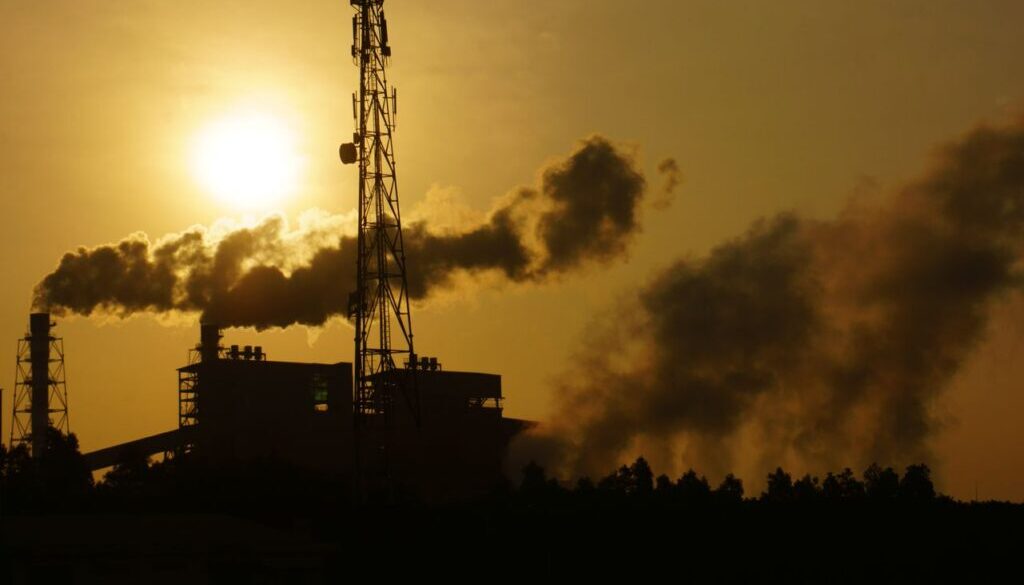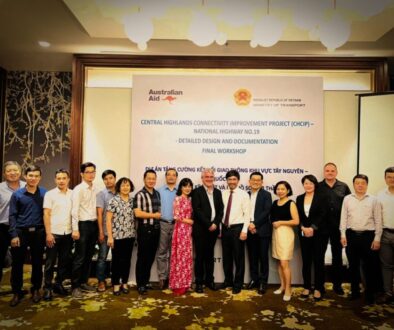Sustainable Infrastructure: A Pathway for Vietnam
IN BRIEF
Whilst we cannot deny the vital role of transport for the socio-economic development of any country, we must admit it can also have a significant impact on the environment. According to the World Bank, transport accounts for approximately 64% of global oil consumption, 27% of all energy use and 23% of the world’s energy-related carbon dioxide emissions.
How can we transform infrastructure to be more sustainable? How can we improve its durability and service in the long run, without compromising on speed of design and construction? Unfortunately, there isn’t a universal, established mechanism for sharing the learnings from the different environmental and social impact mitigation approaches across communities of practice or sectors of industry. Neither is there a so-called “default model” or “go-to model” to follow. The only thing that is universally clear is that the pathway toward sustainable transport infrastructure is built around four main elements: environment, people, institutions, and economic progress. In other words, transport infrastructure should be resilient to climate change, socially inclusive, environmentally sensitive, technologically advanced, promoted and supported by government, flexible and productive.
The Aus4Transport Program, an Australian initiative to support the development of Vietnam’s transport sector, is currently assisting the Government of Vietnam to better consider and address social and environmental impacts before, during and after project implementation. Specifically, through the activity “Environmental and Social Benefits and Costs of Transport Infrastructure Projects (ESIA)”, the Program is developing three sets of Sector Standards (TCCS) for three transport sub-sectors: road, inland waterway and railway, which will recommend assessment tools and processes to guide effective evaluation of projects’ impact on ecosystems, environments, and people. The activity is in its final stage and close to completion thanks to the continued efforts and strong commitment of all stakeholders.
KNOW MORE…
Unlike many other industries that are gradually reducing emissions through deliberate measures, the global transport sector continues to report an alarming 0.8 percent growth in metric tons of carbon-dioxide equivalent every year.
In Vietnam, for example, CO2 emissions from transport are about 30 million tons annually, with road transport accounting for 85%, inland and coastal waterway transport for 10%, and air transport 5%. (Natural Resources and Environment Newspaper, 2019). These figures are anticipated to be rapidly increasing because of the development and expansion of the transport network which will put the country at a higher environmental risks, particularly air pollution, leading to climate change and increasing the frequency of natural disaster. However, a right design can help to mitigate those negative impacts and to prevent the foreseeable natural hazards.
Hence, it is a high priority for the transport sector to develop procedures that support it to respond to climate change and mitigate natural disasters. Balancing the benefits of large infrastructure projects against costs on environment and society is vitally important and requires a defined Environmental and Social Impact Assessment (ESIA) framework to guarantee comprehensive consideration and management of environmental impacts before, during and after construction.
Within the framework of the Aus4Transport Program, and in line with Vietnamese regulations, the ESIA activity will provide concrete procedures and guidelines through three sets of Sectors Standard (TCCS). These TCCS will make project preparation and approval processes more efficient, optimise investment and provide important environmental and social benefits for Vietnam.
The application of the sector standards by the Directorate for Roads of Vietnam (DRVN), Vietnam Railway Authority (VNRA) and Vietnam Inland Water Administration (VIWA), will enhance their management ability to efficiently and accurately analyse and predict environmental risks and develop effective measures for social and environmental protection.
In the longer term, the Sector Standards will support technical staff and experts involved in transport development projects to acquire cutting-edge knowledge and adopt best international practice that are in line with the current related Vietnamese regulations, motivating them to undertake comprehensive, systematic and high-quality environmental and social impact assessments. At the same time, it will also support MOT leaders to access and use these assessments to make informed decisions and stay consistent with its stance toward to central agencies and private sector investors.
Due to the Covid-19 restrictions imposed in Vietnam during the last few months of 2021, the activity has faced several challenges and unpreventable delays, mainly related to cancellation of face-to-face meetings or site-visit requirements. However, thanks to the efforts of all stakeholders and technical specialists, the activity is getting very close to finalisation.
The draft TCCS on environment impact assessment for each sector has already been revised and was submitted to the Department of VNR and VIWA in January and to the DRVN expecting in early March. All TCCS are expected to be officially approved and publicly announced soon. After that, the definitive version of the TCCSs will be distributed to all relevant transport infrastructure stakeholders and ready to be mainstreamed and implemented.
Aus4Transport, together with the Department of Environment and the involved sub-sector administrations, have been very committed to the success of this activity and are excitedly looking forward to when these new TCCS are applied and practised on all transport projects. This activity is an important element of Aus4Transport’s support the Vietnamese transport sector, helping GOV to reach its targets and to bring Vietnam a step closer to achieving the Sustainable Development Goals.




